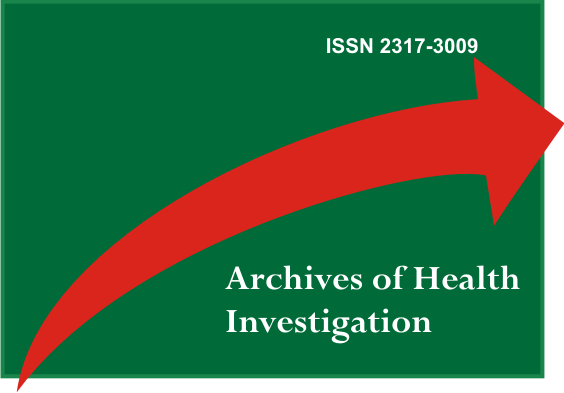Z-oo7 - Effect of ozonized oil in the management of experimental alveolar osteitis. Histologic and histomorphometric analysis
Resumo
Alveolar osteitis or dry socket is the most common postoperative complication following tooth extraction. The aim of this research was to evaluate histologic and morphometric aspects of wound healing after experimental alveolar osteitis, treated by ozonized sunflower oil and Alveoliten®. Under general anesthesia 84 female Wistar rats underwent upper right incisor extraction. 72 were induced to experimental alveolar osteitis by intra alveolar adrenalin (1:100.000) application for five minutes. Groups were divided as follow: group I: dry socket treated with sunflower oil (n=20); group II: dry socket treated with ozonized oil (peroxide 87,3 mEq/Kg and 0,4 of acidity) (n=20); group III: dry socket treated by Alveoliten® (n=20); group IV dry socket without treatment (n=12); and group V: dental extraction (n=12). Rats were euthanized in a carbon dioxide (CO2) chamber after 2, 7,14 e 21. Specime were histological processed and analyzed. Histological findings showed inflammatory infiltrate even 14 days after treatment. Histomorphometric data were statistically analyzed by Kruskal-Wallis and Conover non parametric tests. There were significant differences between treatments after 7 (p=0.0010), 14 (p=0.0320) 21 (p=0.0222). Ozonated sunflower oil was able to induce intense inflammatory infiltrate during the first period of observation but it promoted bone growth on the following periods. Under controlled conditions of this study, alveolar bone healing was superior when Alveoliten® was applied.Financial support: FAPESP (2009/03413-9)
marypylo@yahoo.com
Downloads
Downloads
Publicado
2013-12-19
Como Citar
Rodríguez Sánchez, M., Correa, L., Maciel, J., Meorin, L., Bassi APF, A., & Deboni, M. (2013). Z-oo7 - Effect of ozonized oil in the management of experimental alveolar osteitis. Histologic and histomorphometric analysis. ARCHIVES OF HEALTH INVESTIGATION, 2. Recuperado de https://archhealthinvestigation.emnuvens.com.br/ARCHI/article/view/321


